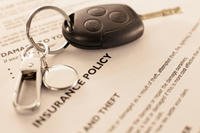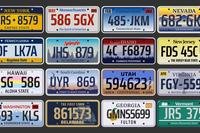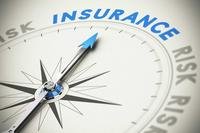Auto Insurance. If you own or lease, or even drive someone else's car, you need it. But what exactly is it and what types of policies are available?
Auto insurance is a product you purchase that will help ease some of your financial losses if your car is damaged or you or others are injured, or you cause damage to someone else's vehicle.
It is an agreement or contract between you and your insurance company where they agree to give you an auto policy or policies, and you agree to pay them what's called a premium, which is a recurring fee. This premium can be paid monthly, every six months or yearly, depending on the agreement and the insurance company you use.
In this contract, your insurance company agrees to provide you with financial coverage, up to the limits outlined in your policy, for the types of events and problems your policies cover.
There are different types of car insurance policies available which we will break down below. Some policies, such as collision and comprehensive, cover your vehicle. Others, such as liability, medical payments, and non-owner, are attached to you, the driver.
Collision insurance
Collision insurance is just what it sounds like. It covers your car when it is damaged from hitting something. It doesn't have to be another car. It can also be from running into any object such as a tree, fence, or animal.
Comprehensive insurance
Comprehensive insurance covers damage to your vehicle that is not a result of a collision. Some people like to refer to it as "Non-Collision Insurance" or NCI. It also covers damage to your vehicle, but from things other than collisions. Theft, fire, storm, and vandalism are all examples of items that would be covered.
Uninsured motorist insurance
Uninsured motorist insurance protects your vehicle if it is damaged by an uninsured, negligent driver. Not only can it cover damage to your vehicle, but it can also cover medical payments for you and those in your car who are injured during the same accident. In some cases, it can even cover loss of income as well as pain and suffering.
Underinsured motorist insurance
What happens if another driver causes an accident and doesn't have enough insurance to cover your costs or had insurance that did not meet state-mandated minimum liability requirements? That is where underinsured motorist insurance comes into play. Underinsured works similarly to uninsured and in some states are bundled together into one policy.
Liability coverage
Liability coverage is the policy everyone that owns a car is required to carry in most US states. This policy only covers property damage and injuries caused to others by you, in which you are responsible for.
Medical payments coverage
No matter who is at fault, if you are injured in an auto accident, medical payments coverage can help with your medical expenses even if you have Tricare or private health insurance.
Personal injury protection insurance
Personal injury protection insurance may cover certain medical expenses and loss of income resulting from a covered accident. Depending on the limits of a policy, personal injury protection could cover as much as 80% of medical and other expenses stemming from a covered accident.
Gap insurance
If you have ever purchased a new car, chances are the Finance Manager has offered you a gap insurance policy. Gap insurance can cover the "gap" between the amount you owe on your car and the car's actual cash value in the event the auto is totaled or stolen.
Non-Owner insurance
If you don't have a car and drive one that isn't yours, non-owner insurance can help cover your liability for injuries and property damage you cause to others in an accident. Keep in mind that it does not offer any coverage to the vehicle you have rented or borrowed and does not pay for any medical bills incurred for your own injuries you sustain in an at-fault accident. This policy can be great for service members that may be between cars due to a deployment, to keep some type of ongoing coverage. Going without insurance for a period of time can make you look risky to Insurance companies and lead to higher rates when you purchase a vehicle.
Purchasing auto insurance
With all the different types of auto insurance policies out there, it's a good idea to talk to your insurance company about the specific coverages and limits that you need to keep your vehicle protected and leave you with peace of mind. Compare discounts, coverage, and polices and get the best deal for your money.













